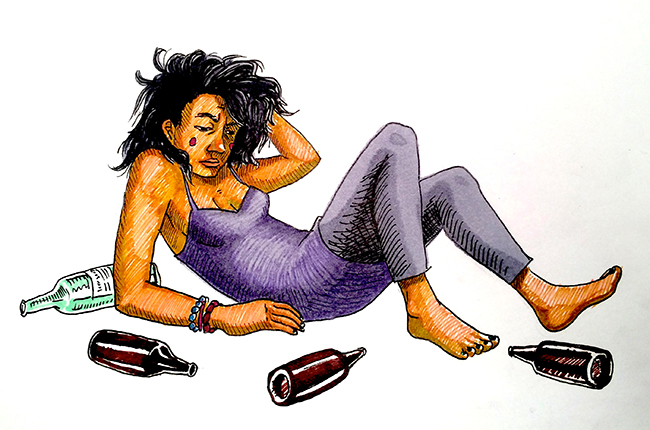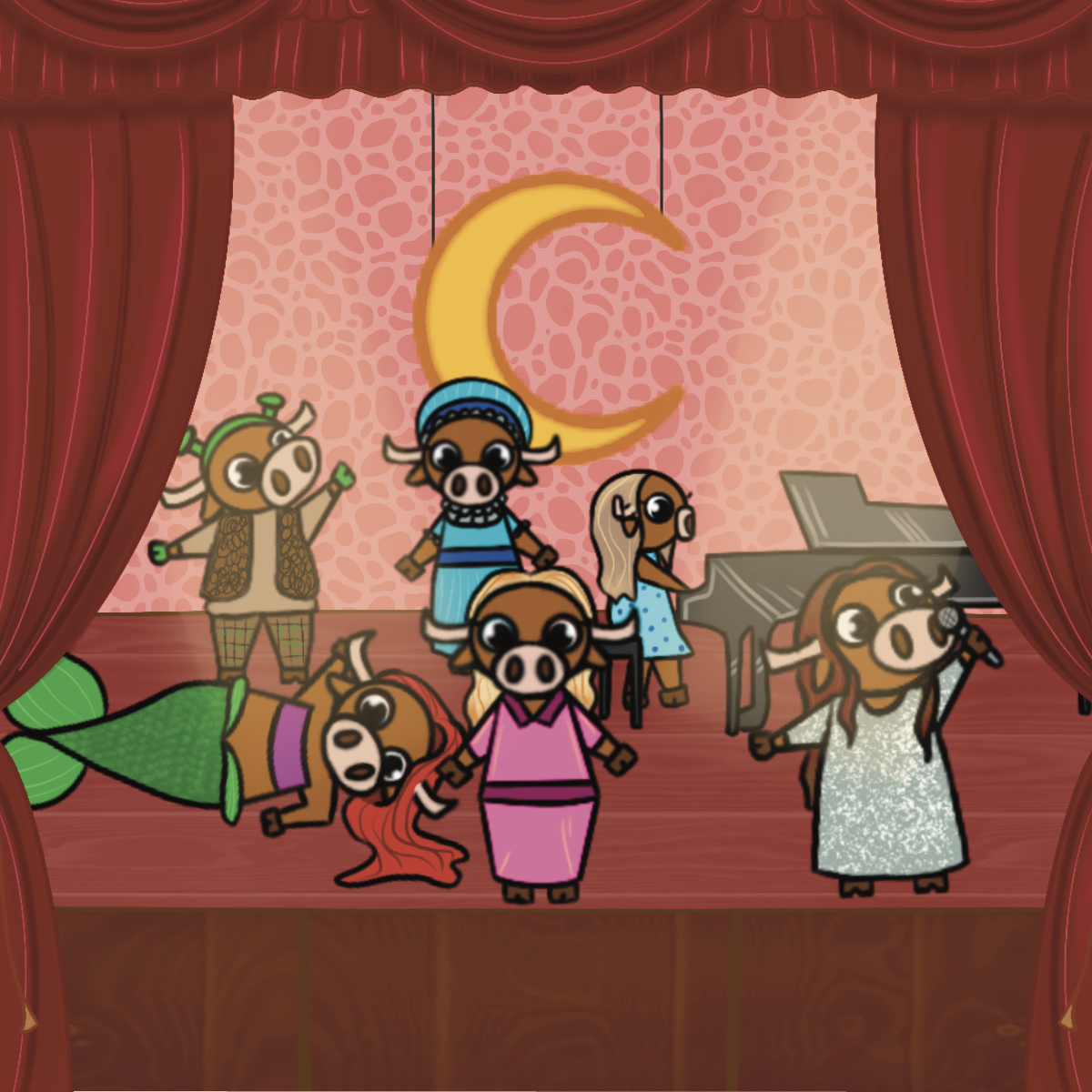Editor’s Note: This recurring series attempts to offer students an opportunity to share their thoughts on subjects difficult to discuss with peers.
On a typical Thursday evening in West Campus, the overbearing bass of a hip-hop song pulses through the air beneath a layer of indiscernible laughter and conversation. Some students will wake up the next morning and laugh at their drunken escapades. Others remember nothing.
These students are part of a campus culture where the term “blackout drunk” is commonplace, even though less than 10 percent of adults and college students are considered binge drinkers, according to Healthyhorns. The term refers to memory loss caused by consuming too much alcohol, ranging from fragmentary blackouts to complete loss of memory during the period of intoxication.
There is a wide range of student opinions tied to alcohol and blacking out. In her New York Times best-selling memoir, “Blackout: Remembering The Things I Drank To Forget,” UT alumna Sarah Hepola discusses her alcohol-ridden young adulthood and the wisdom she obtained from those experiences. Through her research, she said she found that today’s college crowd generally approaches blacking out more casually than the students she observed during her time on the 40 Acres 20 years ago.
“I think we live in a culture that has encouraged a lot of [drunken] shenanigans, especially in college, as sort of rite of passage,” Hepola said. “I think that needs to be disrupted a little bit.”
Mechanical engineering senior Kirby Martinez said he has blacked out about 20 times, none of which were intentional.
“I don’t go into the night being, like, ‘I want to black out,’” Martinez said. “I go into the night saying, ‘I want to get fucked up,’ and whatever amount of alcohol that’s going to take, I’m going to drink it. If that amount happens to be past the point of blackout, then I black out.”
Although he said he has never run into legal trouble while blackout drunk, Martinez said he sometimes engages in dangerous activity such as jumping over dumpsters or into lakes.
In her research, Hepola found that the blood alcohol content levels for people with fragmentary blackouts is generally around .2 BAC. At .3 BAC, full-blown blackouts occur, and at about .35 BAC, death could occur. The legal limit in Texas is .08 BAC.
Hepola said she found these numbers concerning because the small .05 margin between blacking out and death and the ease at which drinkers can unknowingly pass from one level to the next.
Journalism junior Jules Lawrence said he often finds himself on the verge of blacking out but disregards his limit because once he is already drunk, his decision-making skills are no longer sharp.
Lawrence said he thinks blacking out can become a problem when done in excess, but he doesn’t consider himself a crazy partier and has never felt shame or worry after a blackout.
“It’s honestly kind of fun to piece back together what happened that night,” Lawrence said. “It’s like [the game of] Clue — you have some pieces, but you have to figure out what all the other ones are.”
After interviewing both men and women about their drinking habits, Hepola said she found that women have more anxiety and regret than men after blacking out, worrying about how they were perceived or if they tarnished their image.
Twenty-five-year-old journalism senior Alexa Hart said she regretted many of the nights she unintentionally blacked out when she was younger. Now, she realizes getting blackout drunk wasn’t cute or fun but hurtful to the people she cared about and herself — both emotionally and physically, as she sometimes woke up with unexplained bruises from drunken falls.
When friends rehashed the happenings of her drunken escapades, she said she often felt ashamed but would later find herself drinking again, caught in a seemingly hopeless cycle.
“Everyone says, ‘It’s not alcoholism when you’re in college,’ and that kind of obscures realizing that maybe you are drinking too much,” Hart said. “Maybe what you are doing isn’t normal or healthy or OK.”
Maddie Houston, a communication sciences and disorders sophomore, said she does not have what she considers normal drinking habits for a college student. She attends parties but does not drink, limiting her alcohol intake to a glass of wine with family or friends. She said her faith and the fear of losing control or her memory keeps her from ever getting drunk.
“I’m a Christian, but it’s not like I think God condemns those who drink,” Houston said. “It just gives me a different outlook on how I want to live, and I think it would be hard for me to do that if I were drunk a lot of the time.”
Twenty years removed from her blackout streak, Hepola said she remembers the sense of belonging that came with drinking in college. She doesn’t encourage students to abstain from alcohol but to be more aware of the risk factors involved with drinking, which include personal injury, sexual assault, violence and
alcohol poisoning.
“I don’t like giving advice because I never took advice,” Hepola said. “People would be like, ‘This horrible thing happened to me,’ and I would be like, ‘OK, that’s sad, but that’s not going to happen to me.’ But when it does, that changes you.”




















